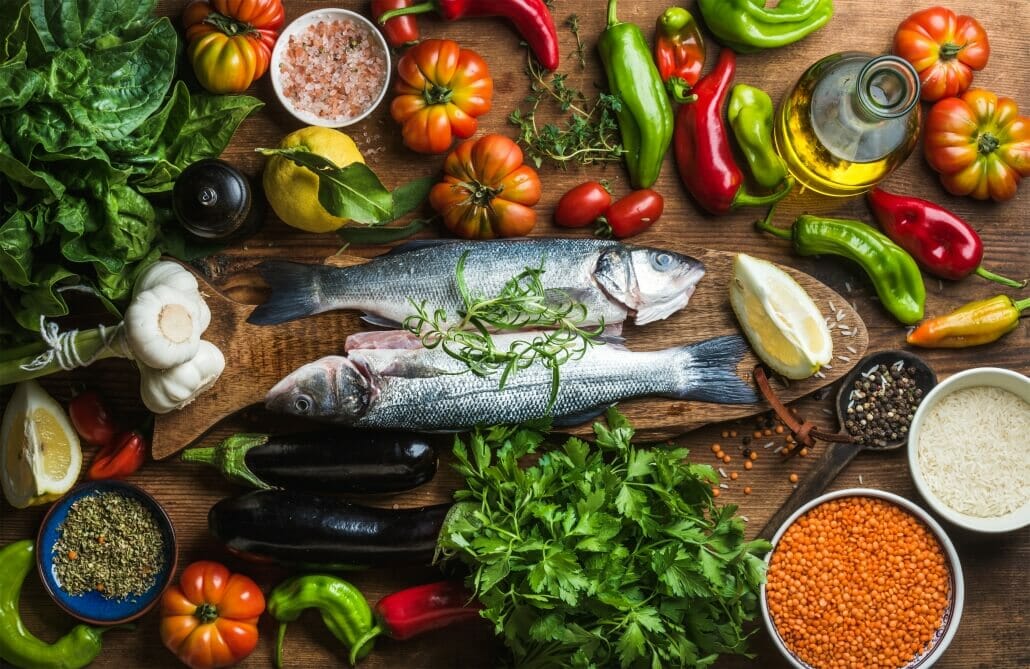Research into human longevity has made great strides in recent years, highlighting important discoveries about dietary habits that can promote a longer, healthier life. In this article, we will explore Longevity dietA nutritional approach based on scientific principles could be the key to achieving centenary life. We’ll discover foods and nutritional strategies that can help you live longer and healthier.

Foods rich in antioxidants
Antioxidants are substances that help fight free radicals in our bodies, reduce oxidative stress and protect cells from damage. Consuming foods rich in antioxidants is an important factor in longevity. Here are some examples of Foods rich in antioxidants Which you should include in your diet:
- fruitBerries (such as blueberries, strawberries, and blackberries), citrus fruits (such as oranges and lemons), apples, and pomegranates.
- vegetables: spinach, cabbage, broccoli, carrots, peppers.
- dried fruit: walnuts, almonds, pistachios.
- spices: turmeric, ginger and cinnamon.
The Mediterranean diet: a healthy model
there Mediterranean diet It is considered one of the healthiest eating patterns in the world and can be one of the keys to a long life. This diet is based on consuming fresh, unprocessed, nutrient-dense foods. The basic principles of the Mediterranean diet include:
- olive oil: Use olive oil as the main source of fat.
- FishEat fish at least twice a week, preferably fatty fish such as salmon and mackerel.
- Fruits and vegetablesEat a variety of fruits and vegetables every day.
- All cerealChoose wholegrain breads, pastas and wholegrain cereals.
- legumesEat legumes regularly, such as beans, lentils, and chickpeas.
- Moderate consumption of red meatLimit your intake of red meat and prefer lean meats such as chicken and turkey.
- Moderate consumption of red wineDrink only in moderation with meals.
Reduce consumption of sugars and processed foods
Another important aspect of a longevity diet is to reduce consumption of added sugars and highly processed foods. Sugars can contribute to the development of chronic diseases and accelerate aging. Likewise, processed foods often contain high amounts of sodium, saturated fat, and artificial additives that can be harmful to your health. It is advisable to reduce the consumption of sugary drinks, sweets, packaged snacks and fast foods.
Regular physical activity
In addition to proper nutrition, regular physical activity is essential for a long and healthy life. Exercise helps maintain body weight, improve circulation, strengthen the immune system, and reduce the risk of heart disease, diabetes, and other age-related conditions. Try to get at least 30 minutes a day of moderate physical activity, such as walking, swimming or yoga.
conclusions
The longevity diet is based on a combination of foods rich in antioxidants, while following the principles of the Mediterranean diet and reducing consumption of sugars and processed foods. Along with the right diet, it is important to maintain an active lifestyle and engage in regular physical activity. Remember that longevity is the result of a combination of factors, and genetics play a huge role. Always consult a health professional before making any significant changes to your diet or exercise regimen.
sources
- Harvard TH Chan School of Public Health. (abbreviation II). Nutrition source: antioxidants. links
- The secret of Japanese longevity. links

“Food expert. Unapologetic bacon maven. Beer enthusiast. Pop cultureaholic. General travel scholar. Total internet buff.”


